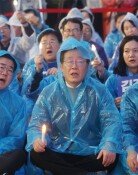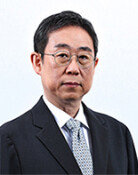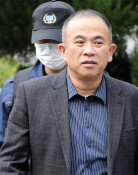Korea’s stock market shows lowest performance among G20
Korea’s stock market shows lowest performance among G20
Posted November. 18, 2024 07:43,
Updated November. 18, 2024 07:43
The Korean stock market was found to have the lowest performance among the stock markets of 20 major countries (G20) post-U.S. presidential election. With the value of the U.S. dollar rising rapidly after Donald Trump was elected as the president, the decline in the value of the Korean won this year was the second largest among major countries. With protectionism projected to impact global trade, the vulnerability of the Korean economy, which relies highly on exports, has been reflected in the stock market and exchange rate.
The KOSPI and KOSDAQ fell 6.2% and 8.8%, respectively, until last weekend after the US presidential election. During the same period, the decline in Asian countries in the G20 was smaller than that of Korea, with China at 1.7% and India at 2.4%. Japan rose by 0.4%, and even Russia, which is at war with Ukraine, rose by 4.7%. As foreign investors rapidly withdrew funds, the proportion of foreign holdings in KOSPI fell to 32.3%, the lowest in the year. The won-dollar exchange rate has risen 8.6% since the end of last year (the value of the won has fallen), while the only major country currency whose exchange rate rose higher against the dollar was the Japanese yen, which has risen 10.7%. The won-dollar exchange rate, which surpassed the 1,400 won mark last week for the first time in two years, shows no signs of falling to around 1,400 won despite solid intervention from the foreign exchange authorities.
The reason behind the weakness of Korea's stock market and the value of the won is that Korea is one of the countries most affected by the Trump administration's tariff policy and lacks future sources for growth to attract investment from overseas. While disappointed domestic investors retreated to the U.S. stock market, the value of U.S. stock held by Korean individual investors reached 100 billion dollars, or 140 trillion won in Korean won. With the weak momentum of the domestic stock market, the weakening of the Korean won intensified in proportion to withdrawn investments to overseas markets.
The Korean stock market should have been prepared for such shocks. However, the ban on short selling, which is one of the reasons why foreign investors are reluctant to invest in the Korean stock market and which Financial Supervisory Service Chairman Lee Bok-hyun recently described as “shameful,” will not be lifted until March next year. The ‘K-Chips Act,’ which was founded to support the semiconductor industry that drives Korean exports, is under debate on whether to allow exceptions to the 52-hour workweek for research and development (R&D) positions. The opposition party opposes cutting the highest inheritance tax rate, undermining major corporate shareholders’ desire to see their stock prices rise. The government and political circles, who fail to display any leadership to bring Korea out of the mire, create a bleak picture for our future.






